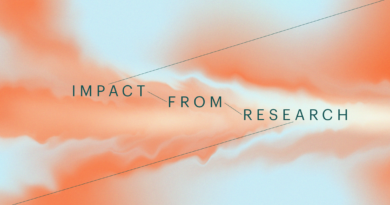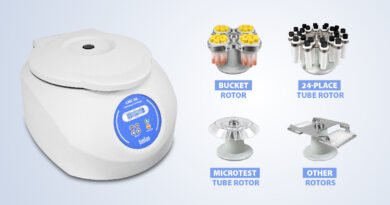First grant to set up independent laboratory in Lithuania
On 12 January European Molecular Biology Organization (EMBO) awarded a substantial grant to the researcher of Warwick University Dr. Algirdas Toleikis. It is the first grant of this sort for a Lithuanian researcher.
Return to home country
According to the young scientist Dr. A. Toleikis, this support opens up the way for him to return to Lithuania. He has the opportunity to establish a new research laboratory in his native country, at the Life Sciences Center of Vilnius University.
The grant is supported by the Research Council of Lithuania with the aim of strengthening the life sciences there.
The research project of Algirdas Toleikis is Single-molecule force studies on Cas3 helicase motor involved in CRISPR. Algirdas Toleikis is excited about setting up his first independent research group in his home country. “I’d always hoped I could return to Lithuania to do my research, but I struggled to find the right opportunity,” he says. “I think the EMBO Installation Grant is the best set-up you could possibly have for starting an independent research career. It will enable me to establish myself in my home country.”
Mechanisms of DNA motors
After completing his undergraduate studies in biochemistry at Vilnius University in Lithuania, Toleikis moved to London to do his PhD on the biophysics of protein-DNA interactions including DNA motor proteins. Then followed postdoctoral research in Coventry in the UK on the biophysics of molecular transport by kinesins. It was while working with kinesins, a group of microtubule-based motor proteins involved in many important cellular processes, that he realised how much more there was to learn about the mechanics and biophysics of DNA motor proteins. “In comparison to DNA motors, we know a lot about how kinesins work,” Toleikis explains.
His research project brings together the experience and expertise he has gained working in both fields. Specifically, Toleikis will be using single molecule force measurements and magnetic tweezers to study the Cas3 helicase motor in CRISPR, short DNA sequences found in prokaryotes that identify and attack pathogenic viruses. “We know that DNA motors are crucial for CRISPR, but just how they contribute to their ability to fight off pathogens is not clearly understood. I want to study the mechanisms of these DNA motors, and I hope my research will help us better understand CRISPR as well.”
Competition with well-funded institutes
EMBO Installation Grants support eight early-career scientists to establish independent laboratories in Lithuania, Poland, Portugal and Turkey.
“We are delighted to welcome to the EMBO community these eight scientists who carry out outstanding research,” says EMBO Director Maria Leptin. “EMBO is committed to fostering excellence in the life sciences across all of Europe, and beyond. The EMBO Installation Grant programme is an instrument to encourage scientists to move or return to the countries participating in it.”
The new EMBO Installation Grantees receive 50,000 euros annually for three to five years. They can apply for additional grants of up to 10,000 euros per year. They become part of the EMBO Young Investigator Network. The network consists of Young Investigators, Global Investigators and Installation Grantees. The grantees also benefit from mentoring by an EMBO Member, grants for travelling to meetings and for organizing conferences, training courses, such as EMBO Lab Leadership courses, as well as access to core facilities at the European Molecular Biology Laboratory (EMBL) in Heidelberg, Germany.
EMBO Installation Grants support early-career scientists who are in the process of establishing their laboratories. The Installation Grants are funded primarily by the host countries with the aim of strengthening the life sciences there. They help to attract excellent group leaders to countries that can face difficulties when competing with other countries and their well-funded research institutes. To encourage international mobility, applicants must have spent at least two consecutive years outside the country in which they plan to set up their laboratory.
The 2020 grantees will establish one laboratory in Lithuania, three in Poland, two in Portugal and two in Turkey.




